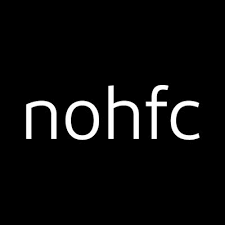
NRC — Steel Wave Flume - Research Facility
At a glance
- No Condition
- Unspecified
- Mining, quarrying, and oil and gas extraction
- Construction
- Manufacturing
- Transportation and warehousing
- Professional, scientific and technical services
- Ontario
- For-profit business
- All revenue ranges
- All organization sizes
- All groups
Overview
Fee-for-service 64 m × 1.2 m × 1.2 m steel wave flume for economical medium scale two-dimensional studies of coastal processes and wave-structure interactions.
Activities funded
The Steel Wave Flume at the NRC's facility is designed for research initiatives focusing on coastal processes and wave-structure interactions. Eligible projects can utilize the flume's extensive capabilities for detailed analysis and performance assessment of marine-related designs.
- Studies on wave-structure interactions using the flume's wave generator and active wave absorption system.
- Research on optimizing infrastructure performance in marine environments utilizing comprehensive wave synthesis and current generation systems.
- Testing of marine vehicle designs and operations under varied wave conditions to enhance safety and efficiency.
- Evaluation of coastal erosion and protection strategies through detailed visual observation and data acquisition systems.
- Integration and testing of new marine technologies in a controlled wave flume environment.
Eligibility
Who is eligible?
Eligible types of companies for this grant include engineering firms, marine technology companies, and research organizations in the field of ocean, coastal, and river engineering.
- Engineering firms specializing in coastal structures
- Marine technology companies developing wave energy devices
- Research organizations focusing on marine vehicle performance
Eligible expenses
This facility provides opportunities to conduct medium-scale studies in coastal processes and wave-structure interactions. Eligible projects focus on assessing performance and optimizing designs for marine infrastructure and vehicles in oceanic environments.
- Testing of coastal and marine infrastructure under various wave conditions.
- Evaluation of wave-structure interactions for different marine operations.
- Optimization studies for marine vehicle performance in waves and currents.
- Assessment of design resilience for infrastructure against extreme weather conditions.
Selection criteria
The grant has evaluation and selection criteria. The criteria include:
- Demonstrated need for medium-scale, two-dimensional studies of coastal processes and wave-structure interactions
- Relevance of the proposed project to advancing knowledge in marine engineering and coastal management
- Evidence of collaboration with industry for assessing infrastructure project designs and marine vehicle performance
- Clear potential for optimizing performance, enhancing safety, and reducing lifecycle costs
How to apply
Check the eligibility criteria for the grant
Write the grant application following the program requirements
Prepare a detailed and justified budget for the project
Submit the application by the prescribed deadlines
Additional information
Here are additional relevant details for this opportunity:
- Utilization of the NRC's wave flume can significantly aid in the transition from research to practical application in marine engineering projects.
- The flume's comprehensive instrumentation and data acquisition capabilities allow for detailed analysis and optimization of marine designs under simulated oceanic conditions.
- Collaboration with the NRC provides access to expert knowledge in the behaviour of structures and vehicles in marine environments, beneficial for enhancing project outcomes.
- Potential collaborative projects could focus on testing innovative coastal protection designs or validating performance of marine vehicles in simulated extreme conditions.
Contacts
Frequently Asked Questions about the NRC — Steel Wave Flume - Research Facility Program
What is the NRC — Steel Wave Flume - Research Facility?
Who is eligible for the NRC — Steel Wave Flume - Research Facility program?
What expenses are eligible under NRC — Steel Wave Flume - Research Facility?
Who can I contact for more information about the NRC — Steel Wave Flume - Research Facility?
Where is the NRC — Steel Wave Flume - Research Facility available?
Is the NRC — Steel Wave Flume - Research Facility a grant, loan, or tax credit?
Who are the financial supporters of the NRC — Steel Wave Flume - Research Facility?
More programs like this

Ontario Innovation Tax Credit (OITC)
Ontario Ministry of Finance
ISDE — Advanced technologies for open-source intelligence due diligence
Innovation, Science and Economic Development Canada (ISED)
Expanded Energy Management Program
Independent Electricity System Operator (IESO)
REGI — Business Scale-up and Productivity (BSP) - Northern Ontario
Government of Canada
FedNor — Regional Tariff Response Initiative
Federal Economic Development Agency for Northern Ontario (FedNor)
Protect Ontario Financing Program
Government of Ontario
Regional Artificial Intelligence Initiative (RAII) for Northern Ontario
Federal Economic Development Agency for Northern Ontario (FedNor)
Ontario Made Manufacturing Investment Tax Credit (OMMITC)
Government of Ontario
INVEST North Program — Investment — Grow Stream
Government of Ontario